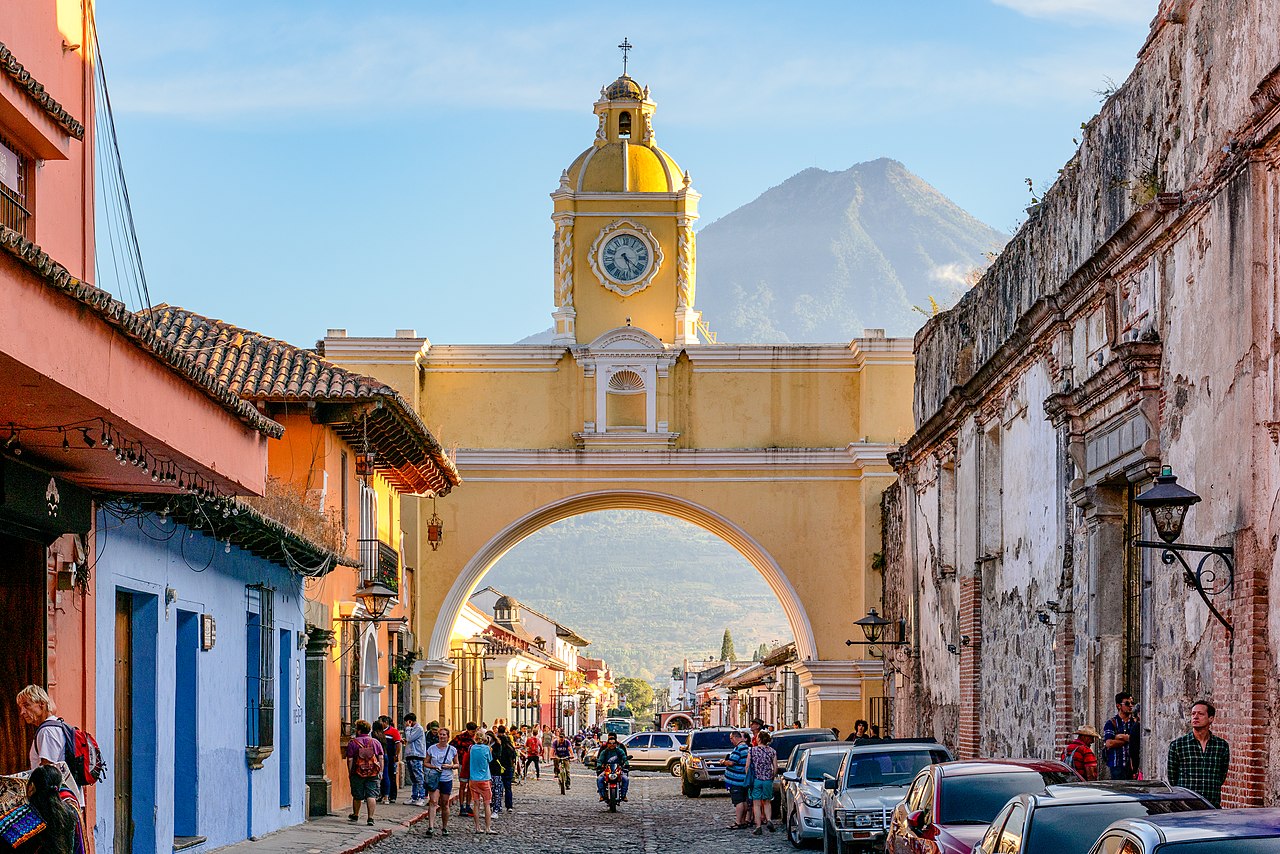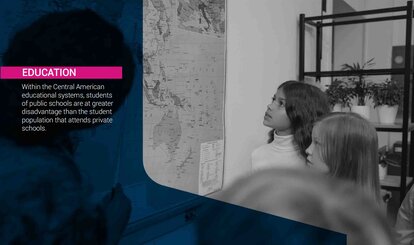Centroamérica
Lines of work Central America


Education
Within the Central American educational systems, students of public schools are at greater disadvantage than the student population that attends private schools. The quality of education varies equally, due to different circumstances. The learning differences between the two sectors could widen significantly in the context of the pandemic. Therefore, the digital gap cannot only be seen as a technological problem, but must be considered as a social and economic complexity that limits equal opportunities of the new generations. We work to promote quality educational systems that allow young people to prepare better for the requirements of the labor market.

Entrepreneurship and Innovation
The generation of sources and new branches of employment is crucial for the new generations, in order to have better perspectives of professional and personal development, without which the advancement of democracy in a framework of non-violence would not be possible. Therefore, together with our counterparts, we seek to generate proposals that allow improving the framework conditions for entrepreneurship, also contributing to the strengthening of entrepreneurial ecosystems. In addition to this, we yearly publish the Central American Edition of the Economic Freedom Report with data from the Fraser Institute.

Human rights
While migration in the context of the search for a better future is an inherent human right, both countries of origin and destination have a long way to go in ensuring safe and orderly migration. On the other hand, efforts should be made to generate better opportunities for social mobility, especially in countries of origin so that migration becomes an option and so that those who return to their country can reintegrate to the labour market and society. Migration is an especially relevant phenomenon for the countries of the Northern Triangle of Central America (Guatemala, El Salvador and Honduras), Mexico and the United States. In this sense, the FNF focuses on a cross-border and multi-sector approach, promoting exchange and dialogue among experts. It is intended to generate proposals for public policy and very concrete actions to offer a response to the challenges derived from the migratory phenomenon.
In addition, we advocate for the inclusion of minorities and vulnerable groups into the labour market so that every individual has opportunities to develop their potential and ensure their well-being. In this way, the Friedrich Naumann Foundation for Freedom contributes in a relevant way to fostering the respect for Human Rights.

Smart cities
The need to maintain a balance between sustainable development, a higher quality of life for citizens, greater efficiency in the use of available resources and active citizen participation, drives the growth and development of a Smart City. It is estimated that, in 2050, 85% of the world's population will live in cities, which leads cities to face major challenges. For this reason, it is important to make the best practices of Smart Cities visible, in terms of promoting an entrepreneurial culture, urban mobility, financial and urban accessibility as well as resilience and transparency, which are replicable in other cities. It is in this context that the Friedrich Naumann Foundation for Freedom created the Smart Cities Network Mexico-Central America in 2017, which promotes the exchange and implementation of these best practices.

Liberalization and integration of energy markets
In Central America, the Friedrich Naumann Foundation for Freedom advocates for the liberalization and integration of energy markets, as this is one of the most relevant factors to achieve lower prices in the generation and distribution of energy that, in turn, allow competitiveness and development of a country.

Young leaders training
Through the Campus of the Alianza para Centroamérica, we contribute to the training of young leaders, both in basic values of liberalism and in the different lines of work that we promote in the region. This in order for new generations to be able to assume leadership in politics, society and economy of their respective countries and the Central American region.